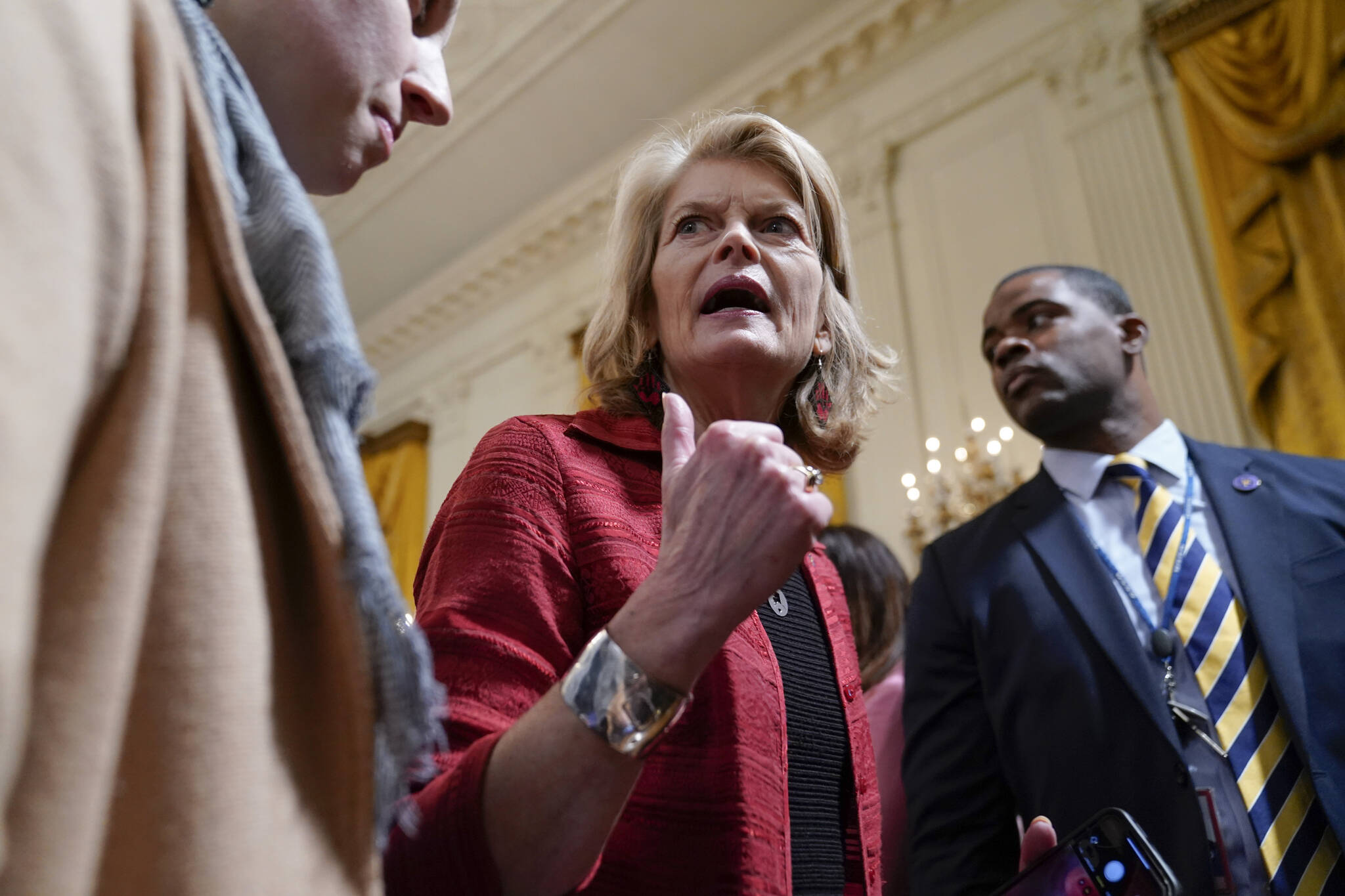Alaskans are lauding the reauthorization of the Violence Against Women Act included in the $1.5 trillion omnibus spending bill recently signed into law by President Joe Biden.
The bill was celebrated during a ceremony at the White House Wednesday where tribal leaders from across the country were guests, including Central Council of the Tlingit and Haida Indian Tribes of Alaska President Richard Chalyee Éesh Peterson. Peterson and his delegation posted pictures of themselves to social media, including a photo of Peterson shaking hands with Biden.
The reauthorization was the work of a bipartisan group of lawmakers including U.S. Sen. Lisa Murkowski, R-Alaska. VAWA was initially enacted in 1994, and it has been reauthorized several times over the ensuing decades.
Speaking to the Alaska House of Representatives Special Committee on Tribal Affairs on Thursday morning, Murkowski called the reauthorization “an extraordinary step forward,” and said it was the result of several years of work. The bill includes a provision for a pilot program for Alaska tribes to exercise jurisdiction over non-tribal citizens for certain crimes.
“We know the status quo is not working,” Murkowski said. “The president yesterday said this legislation is not changing the law, we’re changing the culture. We know that we have to secure enduring policy changes, that’s going to require greater resources.”
Murkowski said the pilot program would allow a limited number of tribes to exercise jurisdiction over non-tribal citizens for crimes related to domestic violence and obstruction of justice. According to the senator, participating tribal courts will have to apply to the U.S. Department of Justice and be able to ensure civil protections enshrined in the U.S. Constitution and the Indian Civil Rights Act.
Thursday’s committee meeting also featured testimony from local experts about how the state can improve protections in Alaska Native villages. Presiding Judge with Tlingit and Haida Debra O’Gara told members Alaska ranks as one of the most dangerous places in the world for women, and Indigenous women are overrepresented in statistics.
Gara said she had previously testified to the committee about the “interconnection between domestic violence, sexual assault and the and the disproportionality of high numbers of missing and murdered Indigenous women, girls, men and our LGBT relatives.”
The reauthorization continues and in some cases increases funding for extant programs, and Murkowski said it will provide additional federal resources to help tribes and the State of Alaska to coordinate on public safety.
“Yes it’s challenging,” Murkowski said. “Jurisdictional issue makes it complex and sometimes confusing, but that should never deny safety or justice.”
Both Murkowski and U.S. Rep. Don Young, R-Alaska, voted for the omnibus spending bill in which the reauthorization was included, but Sen. Dan Sullivan, R-Alaska, did not. In a statement, Sullivan said there was much in the bill he supported including the VAWA reauthorization.
“However, this is a more than $1.5 trillion dollar bill, negotiated and agreed to only by House and Senate leadership, and their staff. It is 2,700 pages long, with thousands more pages in supporting documentation, and senators were provided a little over one day to review and analyze it,” Sullivan said in a statement. “Therefore, I could not support such a bill on which my staff and I were unable to do our appropriate and necessary due diligence. We need to fix our broken budget process that does not serve our military, government or the American people well.”
Contact reporter Peter Segall at psegall@juneauempire.com. Follow him on Twitter at @SegallJnuEmpire.

